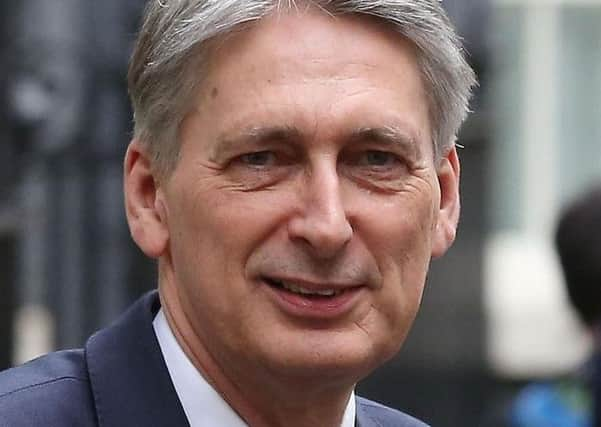David Behrens: Public pay should show we value nurses more than mandarins


As is traditional in British politics, the ensuing debate centred not on whether what he said had merit, assuming he said it, but on whether he should have said it at all, and if he did, whether he should now apologise.
I despair of the way the reportage of these storms in teacups always manages to miss the point – which, in this case, concerns not what Mr Hammond did or did not say but whether people in the public sector are paid too much.
Advertisement
Hide AdAdvertisement
Hide AdSo let me attempt to put the debate back on the rails: of course they are.
Now, let us be clear who “they” are, for there are many in the public sector – the emergency services, nurses, good teachers and countless others – for whom no amount of money is adequate recompense for the skilled, thankless and often dangerous work they do. I don’t believe it was they to whom Mr Hammond’s alleged remarks were addressed; mine are certainly not.
But civil servants at the Department for Transport? Mandarins at Mr Hammond’s Treasury? A lifetime in an office job, insulated from market forces and released in their fifties on an index linked pension financed by the rest of us? You bet they’re paid too much.
The Institute of Fiscal Studies has said as much, time and again. And indeed Mr Hammond, if he said anything, was only repeating the words of one of his predecessors, Norman Lamont, a week or two earlier.
Advertisement
Hide AdAdvertisement
Hide AdThe facts are these: in April this year, the average, seasonally adjusted, weekly pay packet in the public sector was £506, compared with £464 in the private sector. If you take qualifications into account, public sector pay is on average three per cent more than private.
On top of this, the normal pension age in the public sector is five years earlier, and staff can look forward to a level of benefits in retirement not seen elsewhere for a generation. That, says the Fiscal Studies Institute, adds another third to the imbalance, making a public job nearly five per cent more lucrative than a private one.
If the position were reversed there would be outrage, and rightly so.
The government’s strategy to has been to impose a pay rise cap on public workers, which is having the effect of narrowing the gap.
Advertisement
Hide AdAdvertisement
Hide AdHowever, a blunderbuss approach such as that is bound to create anomalies, not least among those at the lower end of the pay scale, who are now finding themselves squeezed by rising costs and an income that is falling in real terms. So, far from ending disparity, the current policy is increasing it.
What is really needed is a root-and-branch shake-up of who is employed at the public expense and what they are employed to do.
By way of example, let’s look at those civil servants at the Department for Transport.
There are 18,245 of them, not including the hundreds of “consultants” hired to tell the full-time staff how to do whatever it is they are supposed to be doing. I worked among them for a short while and by my estimation, around three-quarters were not only overpaid but plain unnecessary.
Advertisement
Hide AdAdvertisement
Hide AdThat’s because they delivered no services themselves; they just administered the contracts of those who did. The front-line work was nearly always outsourced to the private sector.
The way to begin to resolve this is to start ranking roles by their value to society instead of by pay grade, as the civil service has traditionally done.
Nurses, who are difficult enough to recruit in the first place, should not be subject to the same pay restraint as clerks who are just serving their time.
It’s not a question of pumping in more money, which is any government’s knee-jerk response to almost everything, but of redistributing more fairly the available cash to fund a public sector that employs highly valued people exclusively to provide essential services.
No-one would mind that. And the Chancellor would not mind being overheard saying it.